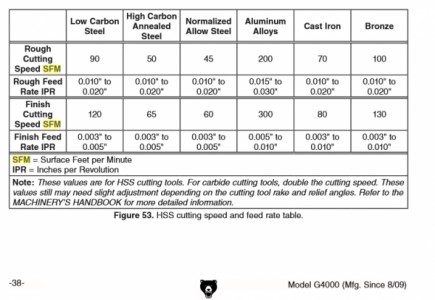If your lathe can't take more than 0.020" deep cuts in aluminum then you need a better tool, not a bigger lathe. My opinion, anyway.
You may be right @mikey , it feels like the tools rub if I try to go with heavier cuts. The AXA toolpost I got from LMS extends the original center stud using a hollow shaft that's threaded internally and externally on the two ends. I think that hollow shaft causes some of the flex.
I'll try to find some garage time soon and give the little 9x20 a good tune up and see what can be improved.


